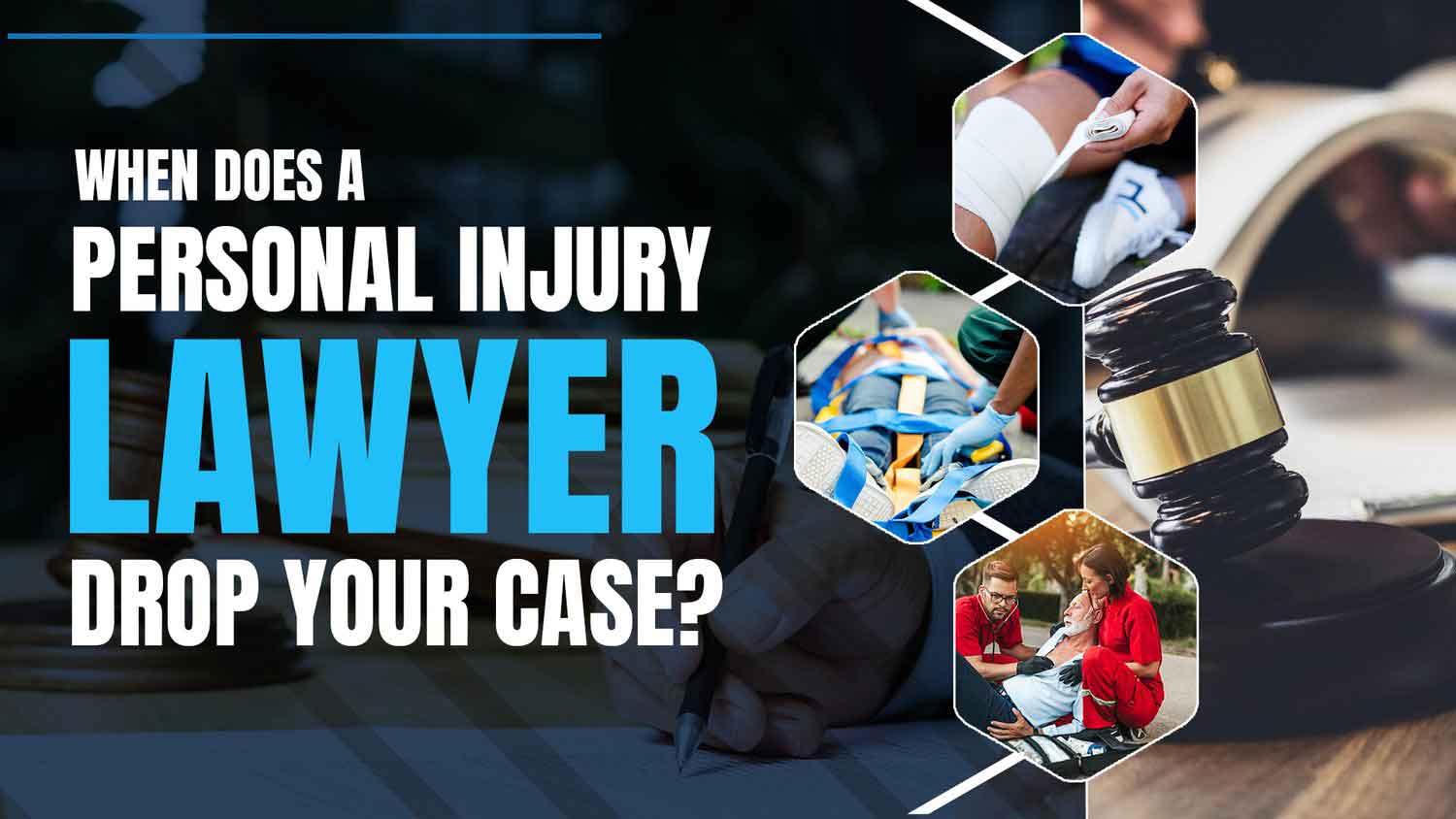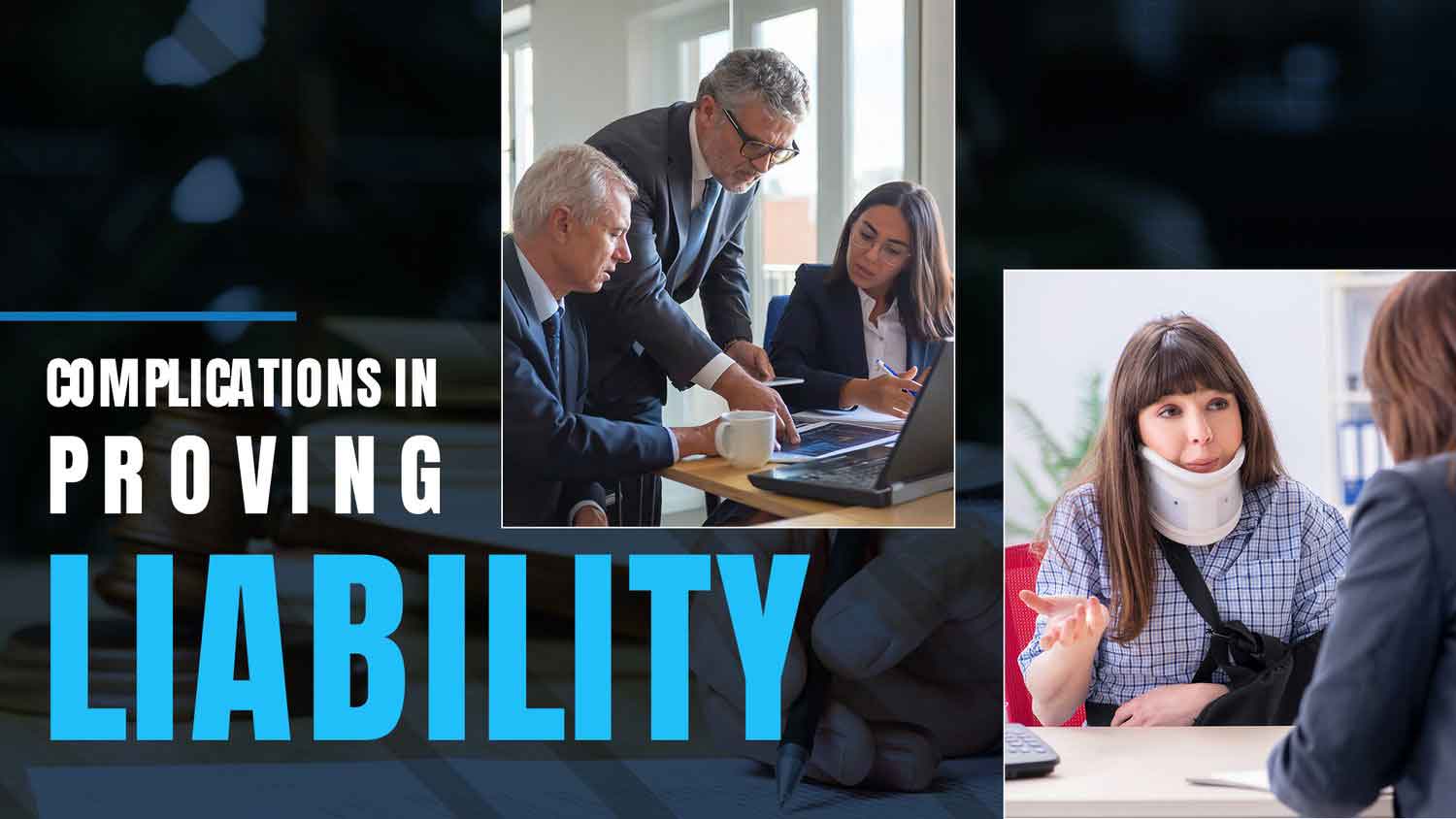
Have you ever wondered when a personal injury lawyer might drop your case?
If you’ve been involved in an accident or suffered an injury due to someone else’s negligence, you may have sought the help of a personal injury lawyer to represent you in your legal battle. However, there may come a time when your lawyer decides to drop your case, leaving you feeling uncertain about what to do next.
In this article, we’ll explore some of the reasons why a personal injury lawyer may choose to drop a case and what you can do to prevent it from happening. You’ll gain a better understanding of the legal process and what you can expect from your lawyer.
So, if you want to learn more about when a personal injury lawyer might drop your case, keep reading!
Personal injury lawyers provide the best legal support following an accident. They are experts in gathering liability evidence against the defendant to resolve a claim and win the case. However, a lawyer may decline to undertake a case, and we will answer why.
When searching for a lawyer, you may find those unwilling to accept your case. But why would they do that? There may be several reasons.
Get A Free Case Consultation Now
Insufficient Damage
The compensation you seek depends on the damage you suffered, whether property damage, pain, medical bills, or wage loss. Since most lawyers charge based on a contingency structure, their fees are a part of the amount received from winning the claim. For example, they don’t charge if they lose.
So, if they feel that the claim amount is inadequate, they may decline the case and avoid investing their time and resources.
Expensive Case
Now, let us look at the exact opposite. When a personal injury lawyer accepts a case, they invest significant time and resources to win it. But there is no guarantee that they will be repaid in full.
While it requires plenty of time and resources to collect evidence to prove the defendant’s liability, there are many associated costs. These include paying to copy documents, paying to take depositions and prepare exhibits, and paying medical professionals and other experts to acquire valuable information for the case.
Hence, if a lawyer realizes that the total of the associated costs does not complement the case’s winning probability, they will decline it. But if the case seems like a potential milestone, they may take it.

Complications In Proving Liability
A case is won when the defendant’s liability for the plaintiff’s damage is proven. However, the damage is not the only factor to prove the defendant’s liability; the accident might have been the plaintiff’s fault.
Thus, the lawyer will assess the case, and only take it upon confirming a high probability of success. If they feel that proving liability will be complex, they may decline the case.
Excessive Time Involved
It may seem strange for a professional to decline a case because it involves excessive time. But it is possible. However, they may accept it if there is profit.
Usually, lawyers analyze a case to discern the approximate time it should need. Since lawyers typically charge contingency fees, they may not want to spend too much time in one case. But it has a high claim value, they may differ.
On the other hand, a lawyer charging an hourly fee may accept the case because they receive money for every hour they spend in your case.
Resource Limitations
Although drivers in the US must have insurance, some neglect to get coverage or have enough coverage to pay for the claims. In this occurrence, the lawyer will decline the case because they understand there are no fees for them since the driver has no insurance to pay the money.
Additionally, if the defendant is financially incapable to pay for the damages, the lawyer will not get any money, for which they may decline the case.
Conflict Of Interest
Lawyers strictly comply with ethical guidelines, violating which can result in their legal license cancellation. So, they must do everything to stay within these guidelines.
If they previously represented the defendant and now have to stand against them, they may decline the case to avoid moral odds.
Final Words:
You may now be more aware of why a personal injury lawyer in Los Angeles declines a case. You can evaluate your case based on some of the above pointers to understand if an expert may possibly reject it.
Client-Lawyer Relationship – What Law Has To Say!
In the United States, personal injury lawyers are governed by rules of professional conduct established by each state’s bar association. These rules outline the ethical responsibilities of lawyers and provide guidance on when a lawyer may or may not withdraw from a case.
Under the American Bar Association’s Model Rules of Professional Conduct, Rule 1.16(a) states that a lawyer may withdraw from representing a client if:
- The client insists on taking action that the lawyer considers repugnant or with which the lawyer has a fundamental disagreement.
- The client has used the lawyer’s services to perpetrate a crime or fraud.
- The client’s conduct makes it unreasonably difficult for the lawyer to carry out the representation effectively.
- The client breaches a material term of the agreement between the lawyer and client.
- The lawyer’s physical or mental condition materially impairs the lawyer’s ability to represent the client.
In addition, Rule 1.16(b) provides that a lawyer must withdraw from representation if:
- The representation will result in a violation of the rules of professional conduct or other law.
- The lawyer’s physical or mental condition makes it impossible for the lawyer to represent the client effectively.
- The lawyer is discharged by the client.
It’s important to note that these rules vary by state and may be subject to interpretation by courts and bar associations.
However, they provide a general framework for when a personal injury lawyer may choose to withdraw from representing a client.


